17 Jul 2024
From 18 to 21 May 2024, students from the Digital Media Arts programme, Zehan Lu, Yifei Jiang, and Yanqi He, under the guidance of teacher Yiran Yu from the Film and TV Production programme, participated in the finals of the "National Student 48-Hour Virtual Production Competition". During the intense 48-hour creation period, the team explored cutting-edge virtual production technologies and successfully completed and submitted their work, Go With The Wind. This piece won the Best Work Award in the 2024 "National Student 48-Hour Virtual Production Competition" and represented China in the "International Student 48-Hour Virtual Production Competition," ultimately winning an Excellent Work Award.
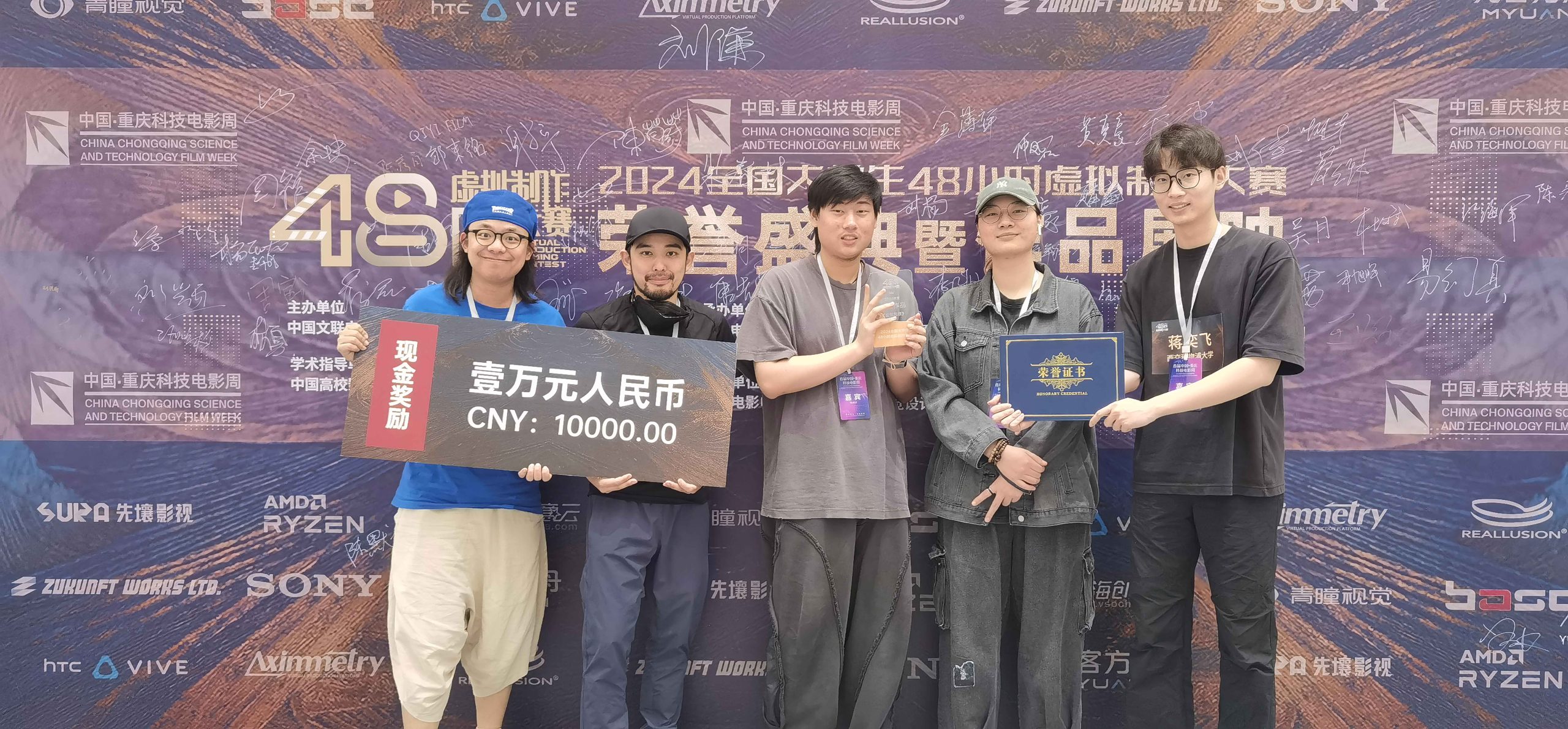
(From left to right: second is Yiran Yu, third to fifth are Yanqi He, Zehan Lu, and Yifei Jiang)
National Student 48-Hour Virtual Production Competition
The "2024 National Student 48-Hour Virtual Production Competition" was jointly organised by the China Federation of Literary and Art Circles Film Art Centre, the Film Digital Production Committee of the China Film Association, the China Virtual Reality Technology and Industry Innovation Platform, and the Film Industry and Management Committee of the China College Film Society.
"Virtual production based on game engines is currently the latest and most advanced technology in the film and art industry. The national competition serves as the final contest for the preliminary winning teams, with participating schools including traditional film powerhouses like Beijing Film Academy and Zhejiang University of Media and Communications. The goal is to discover technical talents among university students and explore their potential in virtual production," explained Yifei Jiang.
They first learned about the competition through Yiran Yu's promotion in class. "We saw it as a rare opportunity, so we participated in the preliminary round and were fortunate enough to advance to the finals." For them, this competition was not only a challenge but also a chance to learn and grow. Yifei Jiang said this was his first award in film production, making it particularly significant.
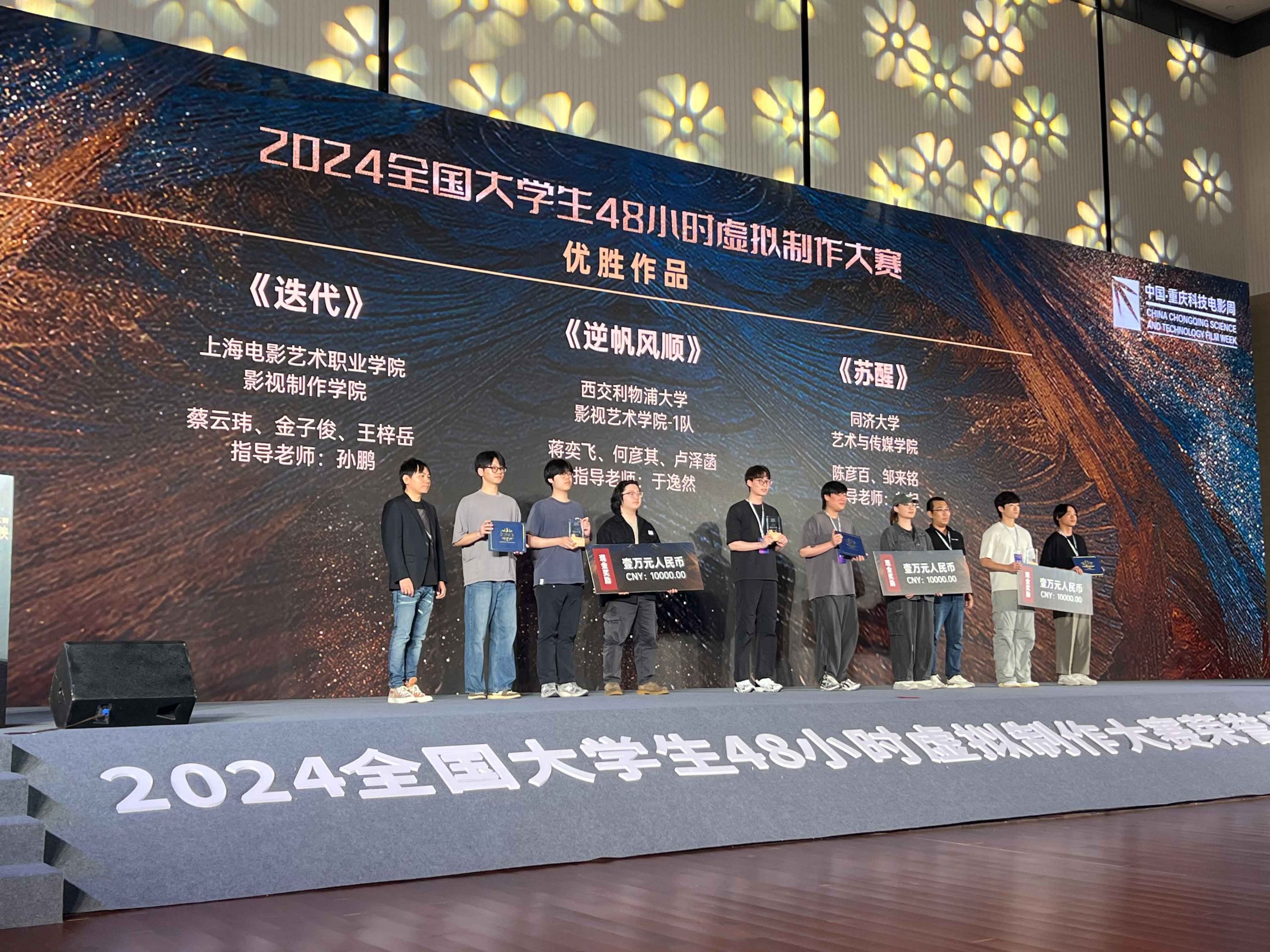
Go With The Wind
The team's work, Go With The Wind, drew inspiration from the topic provided by the organising committee, which depicted children driving a sail-equipped car across a desert or ocean. Yanqi He explained that they took a reverse thinking approach, making the car move backward, thus highlighting the core idea of the work: "Life is like a train; sometimes it moves forward, sometimes backward. Going with the flow and enjoying life can also be a good thing."
Yanqi He believes that the biggest feature of Go With The Wind is that it is a performance-heavy comedy. Unlike other works that chose sci-fi elements and futuristic settings, their script's comedic elements and actors' performances stood out to the judges. Additionally, instead of forcefully fitting the topic into pre-built scenes, they conceptualised the required scenes and elements first, then built them accordingly to ensure the work closely followed the topic.
Zehan Lu emphasised the uniqueness of their work, noting that their starting point was to tell a clear and understandable story while using virtual production technology appropriately without letting the technology restrict their creative thinking. They treated the work as a short film with a clear theme, making it more accessible to the audience.
"So, we were actually the only team whose work had nothing to do with keywords like virtual, AI, or the future, which are typically associated with virtual production. This uniqueness and distinctiveness were likely key reasons for our standout performance."
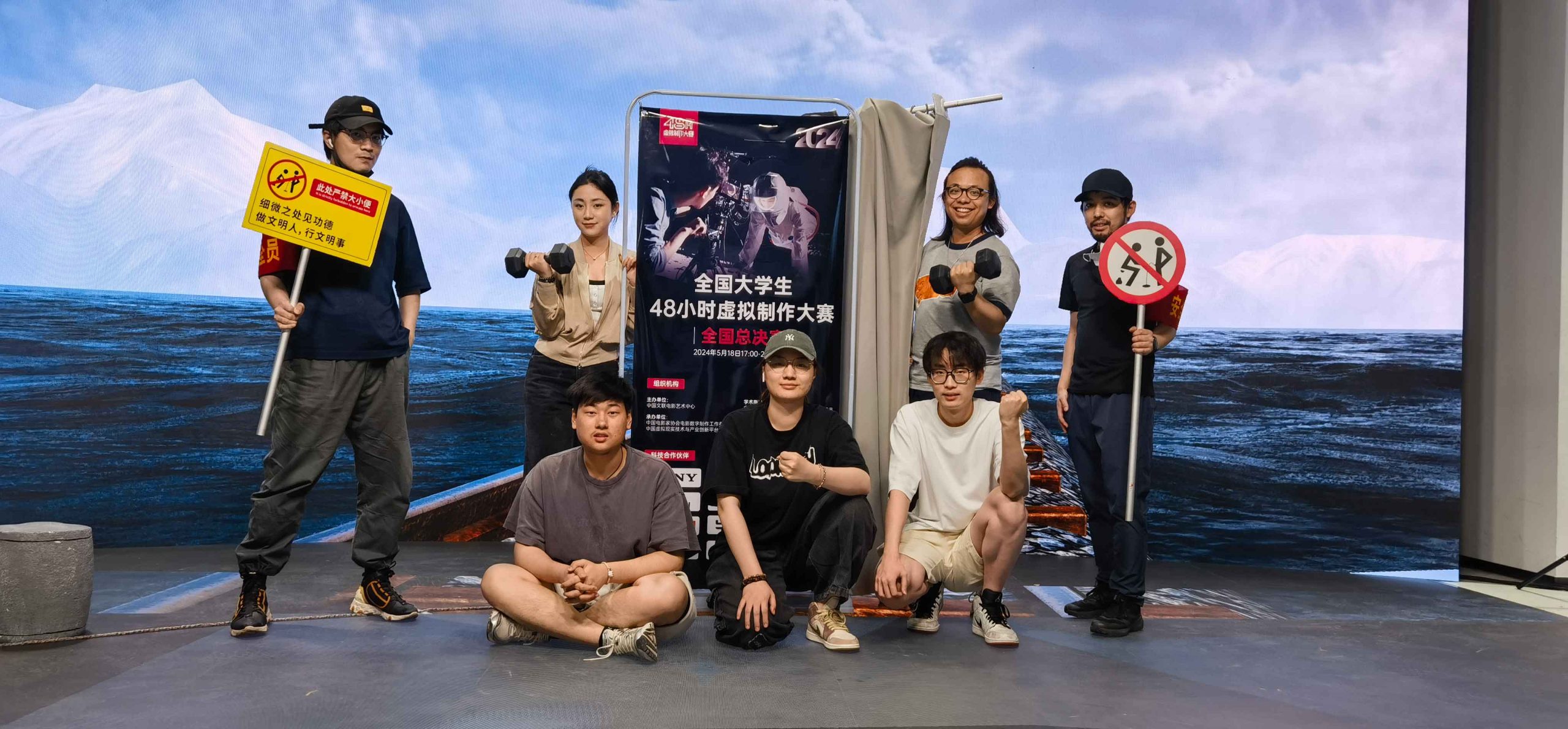
48-Hour Creation Challenge
During the intense 48-hour creation period, the team faced numerous challenges. "Before signing up for the competition, we knew nothing about virtual production, but after these two competitions, we can say we are now very familiar with the process," said Yanqi He.
Yanqi He pointed out that the biggest challenge in the preliminary round was learning and mastering the basic operations of Unreal Engine (UE), including building scenes and displaying them on screen. By the finals, the technical challenges had shifted to motion capture, facial capture technology, and integrating real-time interactions between virtual characters and actors into the work. Additionally, script creation and story cohesion were significant challenges, as they needed to conceive enough comedic points and creativity for the comedy film. Time management was also a severe issue, leaving them with insufficient time for sound and editing.
Yifei Jiang stressed the urgency of the 48-hour creation time, noting, "48 hours is enough for a short film of average quality, but the competition requires the best work in a limited time. Under the logic of 'slow work yields fine products,' all teams were maximising every second to produce good work, and we had to outwork others to win."
Zehan Lu mentioned the unfamiliar creation mode and tight time schedule. She recalled, "Having never experienced this mode of creation, the overall coordination of the shooting was somewhat chaotic. During the preliminary round, we didn't get much rest, hardly sleeping at all." However, by the finals, with the experience of the preliminary round, they became more adept. Although time was still tight, they managed to improve their rest. Through these efforts, the team ultimately overcame various difficulties and completed a high-quality work.
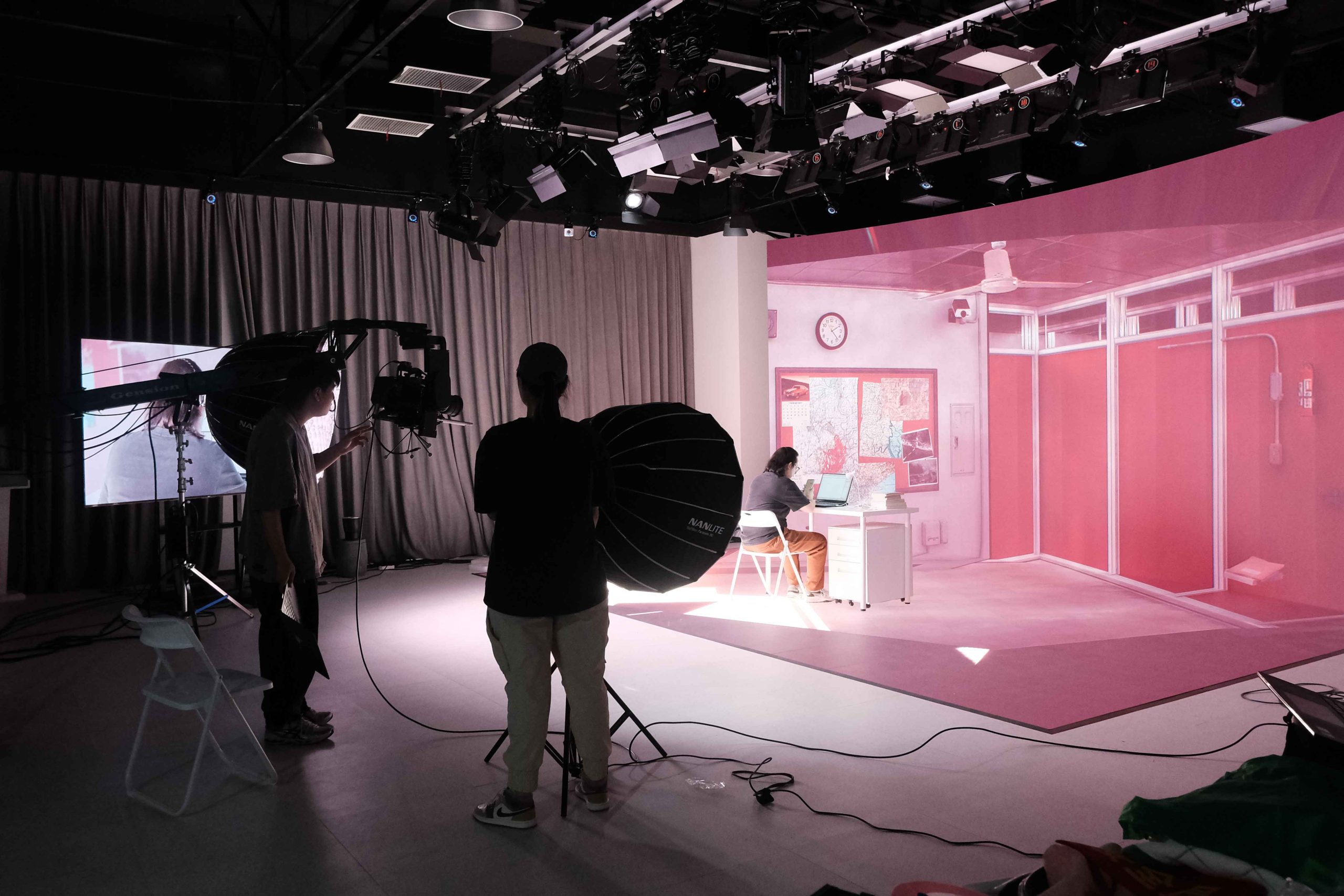
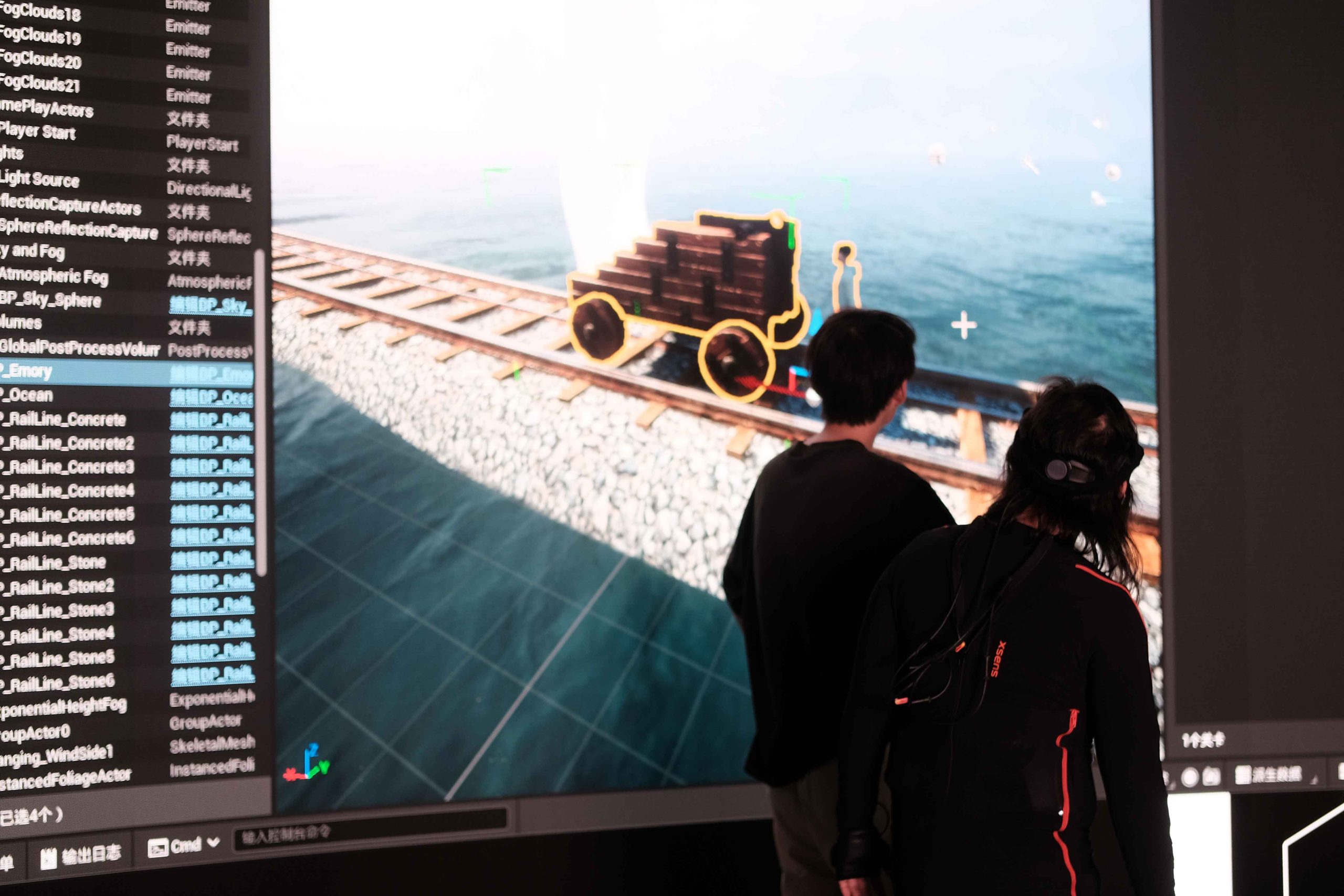
Learning and Application of Virtual Production Technology
While preparing Go With The Wind, the students self-taught and sought guidance from seniors at the virtual production company "Yuan Ke Ark" to learn and explore virtual production technologies. Yanqi He mentioned that they primarily relied on tutorials on YouTube and exchange posts in the Epic Community for learning.
Through this competition, they gained a deeper understanding of virtual production technology. "Virtual production encompasses a wide range of content, requiring a lot of collaboration and coordination, including building scenes in UE, displaying them on screen, using robotic arms to control the camera, tracking the camera's relative position, and correcting the camera's distortion. All these require a lot of experience and manpower to complete," Yanqi He explained.
"With virtual production technology, we are not limited by space and can freely imagine the scenes where the story takes place, then directly build these scenes in UE for studio shooting, avoiding many transitions and travel arrangements, especially in our time-limited creative environment," he added.
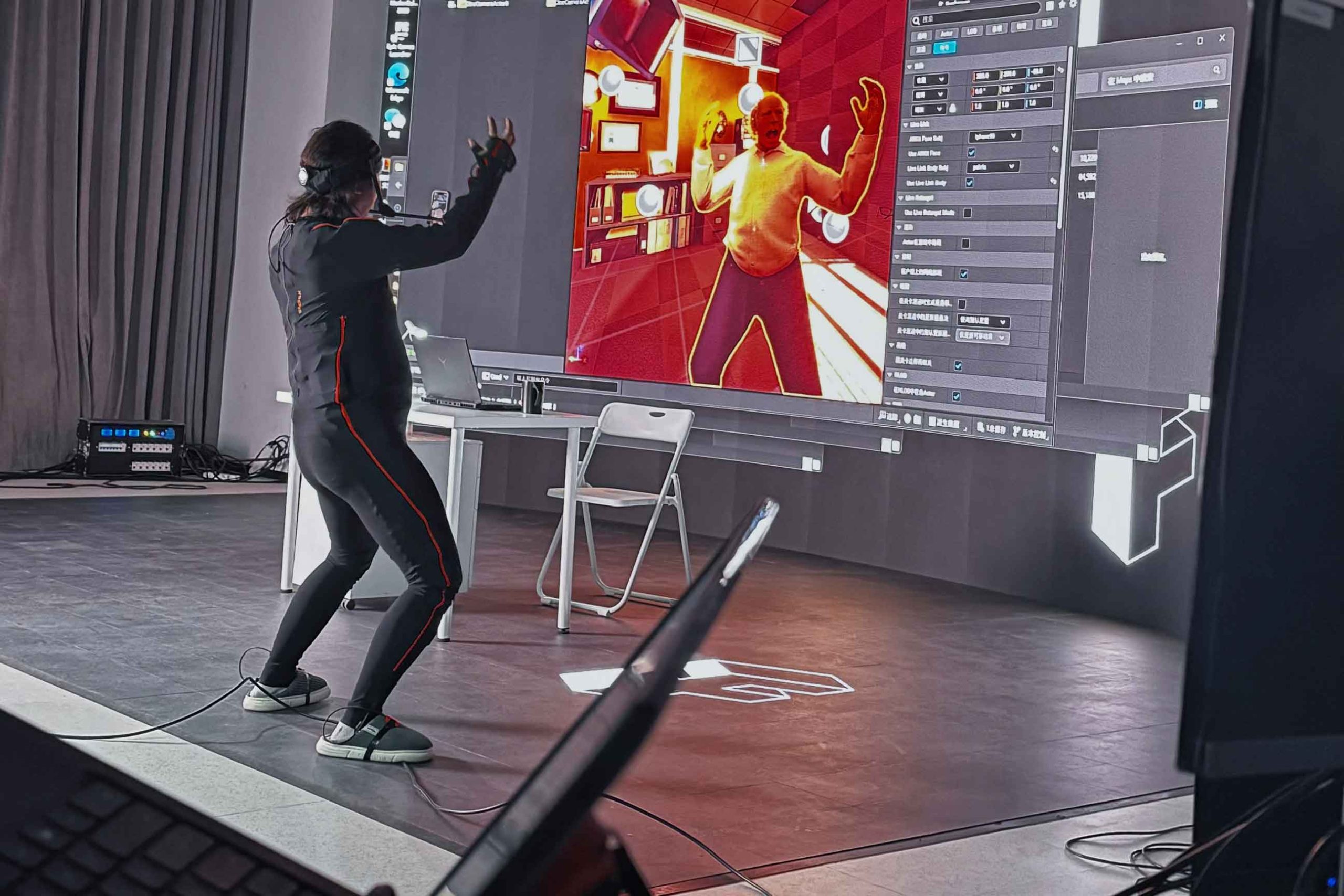
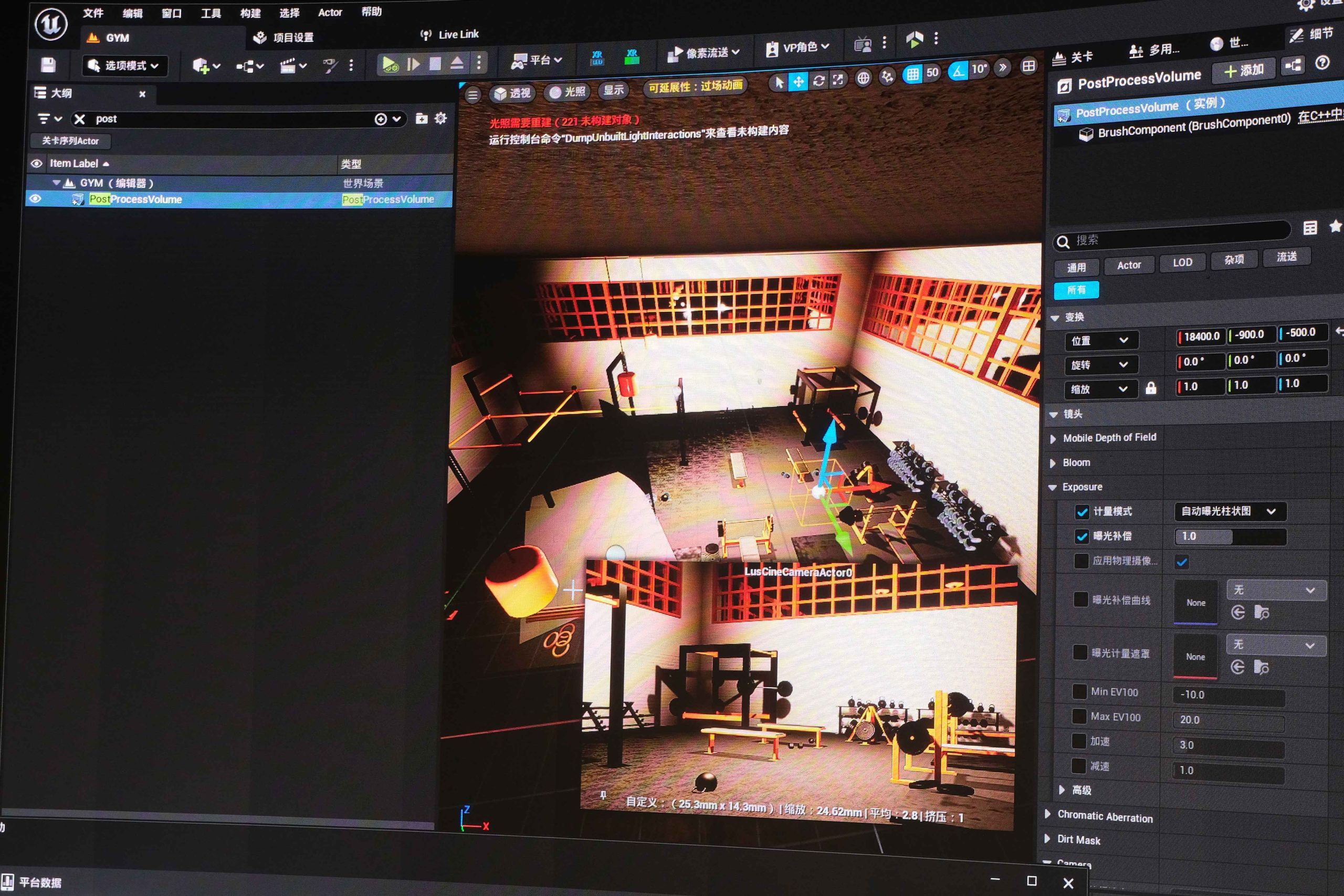
Looking to the future, Yifei Jiang believes that the cost and technical barriers of virtual production are decreasing, making it an essential method for future film production. Zehan Lu sees broad application potential for virtual production in web series, short dramas, and advertisements. For students aspiring to develop in virtual production, Yanqi He suggests first becoming familiar with the basic operations of UE, nDisplay, and Metahuman, then participating in virtual production competitions to develop independent thinking skills.
Teacher Yiran Yu highly praised the students' performance: "The students demonstrated excellent learning ability, professional quality, and creativity in this competition. They not only learned virtual production from scratch and achieved technical breakthroughs but also excelled in teamwork and time management. This competition experience will undoubtedly have a profound impact on their academic and career development."
By Wenzhen Li
Photos provided by Zehan Lu, Yifei Jiang, Yanqi He, Yuan Ke Ark
17 Jul 2024








